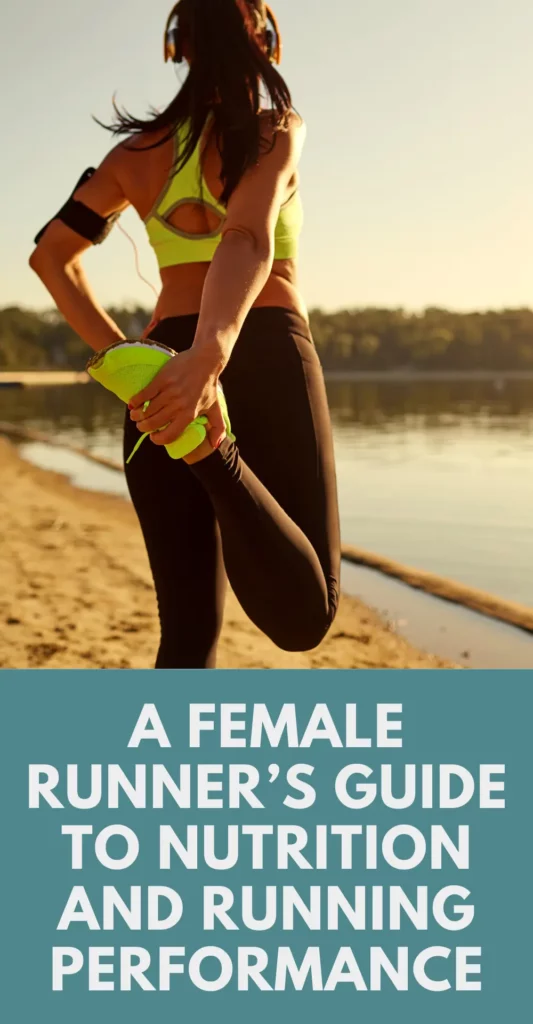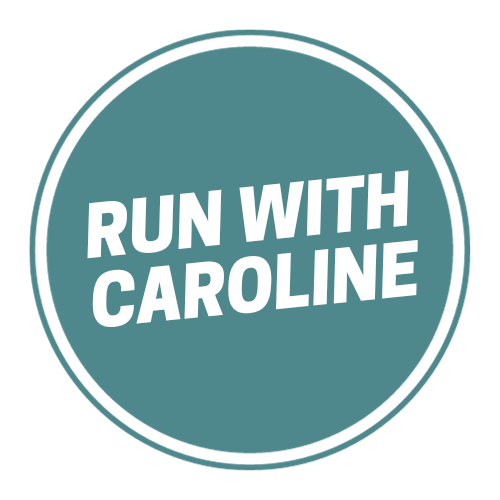As a female runner, achieving success on the track involves more than just lacing up your shoes and hitting the pavement.
The key to unlocking your full potential lies in understanding the critical relationship between nutrition and running performance.
Fuelling your run as a female runner is a multifaceted process.
It involves understanding your energy needs, embracing a balanced diet and adopting strategic nutritional practices.
By doing so, you empower your body to perform at its best, recover effectively and achieve success on the running track.
Remember, nutrition is not only about fuelling your runs but also about nourishing your overall wellbeing.
In this guide, we’ll explore the importance of proper nutrition for female runners and delve into what you should be eating to maximise your success.
We’ll look at:
- Why is proper nutrition important?
- Nutritional strategies for female runners
- Sample meal plan for female runners
Ready?
Let’s go!

A female runner’s guide to nutrition and running performance
Why is proper nutrition important?
Proper nutrition is the fuel that powers your runs and supports your overall health.
Research tell us that inadequate or imbalanced dietary intake may lead to nutrient deficiencies in endurance athletes.
These could impact your health and performance, including diminished bone mineral density, increased risk of injury, immune function abnormalities and more.
For female runners, the right balance of nutrients is crucial for maintaining energy levels, promoting recovery and enhancing endurance.
Let’s break down the key aspects of nutrition that directly impact your running performance.
Energy needs
Running is a demanding activity that requires a substantial amount of energy.
As a female runner, your energy needs are influenced by factors such as age, weight, activity level, training intensity, hormones and your menstrual cycle.
Consuming an appropriate number of calories ensures you have the energy reserves necessary to fuel your runs and support your overall well-being.
Macronutrients
There are three macronutrients that you need to be aware of:
- Carbohydrates: The primary source of energy for runners. Carbohydrates should make up a significant portion of your diet to replenish glycogen stores and sustain energy levels during runs.
- Protein: Essential for muscle repair and recovery. Adequate protein intake supports the maintenance of lean muscle mass and helps prevent injuries.
- Healthy fats: Provide a concentrated source of energy and support overall health. Incorporate sources of unsaturated fats, such as avocados and nuts, into your diet.
Micronutrients
Vitamins and minerals play crucial roles in various physiological processes, including bone health, immune function and energy metabolism.
A diverse and colourful diet rich in fruits and vegetables ensures you obtain a wide range of micronutrients.
Hydration
Staying well-hydrated is vital for optimal performance.
Dehydration can lead to fatigue, muscle cramps and brain fog.
As a female runner, hormonal fluctuations will also influence your hydration needs.
Pay attention to your thirst cues – drink when you feel thirsty.
Related: What to eat before running in the morning: 8 eating tips

Nutritional strategies for female runners
Now that we understand the fundamental role of nutrition in running, let’s explore specific strategies tailored to female runners looking to maximise their success.
#1 A balanced diet
Embrace a well-rounded, balanced diet that includes a mix of carbohydrates, protein and healthy fats.
Prioritise the following whole foods to ensure you receive a broad spectrum of nutrients:
- Fruits
- Vegetables
- Whole grains
- Lean proteins
- Sources of healthy fats
#2 Carbohydrates for energy
Carbohydrates are your body’s preferred source of energy during running.
Include complex carbohydrates like whole grains, sweet potatoes and quinoa in your meals to provide sustained energy.
#3 Protein for recovery:
Adequate protein intake is crucial for muscle repair and recovery.
Include lean protein sources such as poultry, fish, beans and tofu in your meals.
Consider consuming a protein-rich snack or meal within 30 minutes to an hour after your run to maximise recovery.
#4 Healthy fats for sustained energy
Incorporate sources of healthy fats, such as avocados, nuts, seeds, and olive oil, into your diet.
These fats provide sustained energy and support overall health.
#5 Stay hydrated
Hydrate consistently throughout the day, paying attention to both your regular and training hydration needs.
Consider factors such as weather conditions sweat rate when determining how much you should be drinking.
On a normal day, you should be drinking at least 8 glasses of water a day – so your water needs will be greater on days when you’re exercising.
#6 Timing matters
Plan your meals and snacks strategically around your running schedule.
The general rule of thumb is that you should aim to eat a pre-run meal for runs lasting longer than 90 minutes.
Then opt for a pre-run snack for runs lasting less than 90 minutes.
Aim to consume a balanced meal 2-3 hours before a long run and refuel with a combination of carbohydrates and protein afterward.
#7 Adapt to your menstrual cycle
Understand the potential impact of your menstrual cycle on your energy levels and hydration needs.
Adjust your nutrition and hydration strategies accordingly, especially during the luteal phase when you are more likely to require extra energy to manage fatigue and support recovery.
Related: When does period weight go away? All your questions answered

Sample meal plan for female runners
Breakfast:
- Wholegrain oatmeal with berries and a tablespoon of almond butter.
- Greek yogurt with honey.
- A cup of green tea or black coffee.
Mid-morning snack:
- A banana or apple with a small handful of nuts.
Lunch:
- Grilled chicken or tofu salad with mixed greens, cherry tomatoes, cucumbers and quinoa.
- Wholegrain roll or a serving of brown rice.
Afternoon snack:
- Carrot and celery sticks with hummus.
- Low-fat yogurt or a protein smoothie.
Dinner:
- Baked salmon or lentil stew.
- Steamed broccoli and sweet potato.
- Quinoa or brown rice.
Evening snack (if needed):
- A small bowl of mixed berries or a piece of dark chocolate.
Related: Carb loading for runners: Foods to eat and mistakes to avoid
- 5 things I wish I’d known before returning to running - March 3, 2024
- Running 20 minutes a day: Benefits + how to start - January 27, 2024
- How to run your first 2 hour half marathon - January 16, 2024
